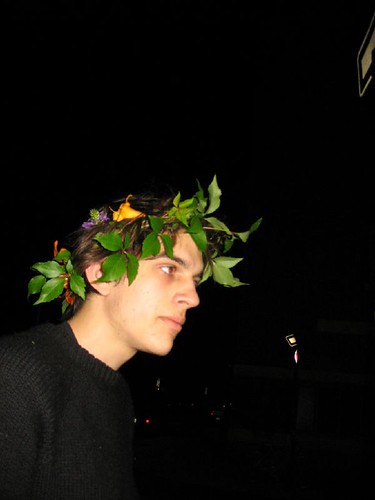Fall
Is it fall now? You say of course it's fall. It's getting cold at night, and leaves are falling off some of the more feckless trees. Also students have started school, and the new season of TV has begun. It doesn't get much more autumnal than this.
Scientists would not agree with you. According to science, fall begins September 21/22. Apparently this is when dawn is the same time at every latitude. Someone decided that *this* is when fall begins, and it is accordingly printed on every calendar. If you say, now it is fall, some busybody will correct you and say no it is still summer.
Using an astronomical definition of "fall" is just stupid. Admittedly, it is astronomical changes that cause coldness (and indirectly, school and new TV shows), but it's not like a specific change causes them. Just the general getting-colder trend that begins in early August and ends in mid-January. There's certainly no reason to select September 21/22 as the time that this change becomes significant. Sure, it's neat, the Earth is untilted, but what does that have to do with fall?
Scientists are obessesd with pushing the definitions of our commonly used words into the most esoteric environment possible. Raspberries are too berries, and from now on: In reasonably temperate zones, fall begins on Labor Day, winter begins on Thanksgiving, spring begins on Easter, and summer begins on Memorial Day. Holidays have so much more to do with cultural shifts in season-perception than astronomical coincidences, don't you think?
Scientists would not agree with you. According to science, fall begins September 21/22. Apparently this is when dawn is the same time at every latitude. Someone decided that *this* is when fall begins, and it is accordingly printed on every calendar. If you say, now it is fall, some busybody will correct you and say no it is still summer.
Using an astronomical definition of "fall" is just stupid. Admittedly, it is astronomical changes that cause coldness (and indirectly, school and new TV shows), but it's not like a specific change causes them. Just the general getting-colder trend that begins in early August and ends in mid-January. There's certainly no reason to select September 21/22 as the time that this change becomes significant. Sure, it's neat, the Earth is untilted, but what does that have to do with fall?
Scientists are obessesd with pushing the definitions of our commonly used words into the most esoteric environment possible. Raspberries are too berries, and from now on: In reasonably temperate zones, fall begins on Labor Day, winter begins on Thanksgiving, spring begins on Easter, and summer begins on Memorial Day. Holidays have so much more to do with cultural shifts in season-perception than astronomical coincidences, don't you think?


3 Comments:
i think the point was: there's equal light/dark hours on the 21/22nd. so every day after that is shorter and shorter. it is just the ground 0. between summer where days are longer and fall where nights are longer.
i think that is a pretty good way of handling it. i just hate that there's 4 seasons and not 2.
Yeah, but summer in our minds is not "when the days are long but getting shorter". Summer is when it's really hot. The two coincide a lot, but they are different things.
Trying to smash those two definitions together, in an effort to get us to accept that what we *really* meant all along was "Summer is when the days are long but getting shorter"is dishonest.
It's trying to get us to talk about seasons as we are astronomers first and people second.
Well it's not like the spring equinox doesn't float. It happens every 365.25... days. Sometimes it's on the 20th, sometimes the 21st.
Post a Comment
<< Home